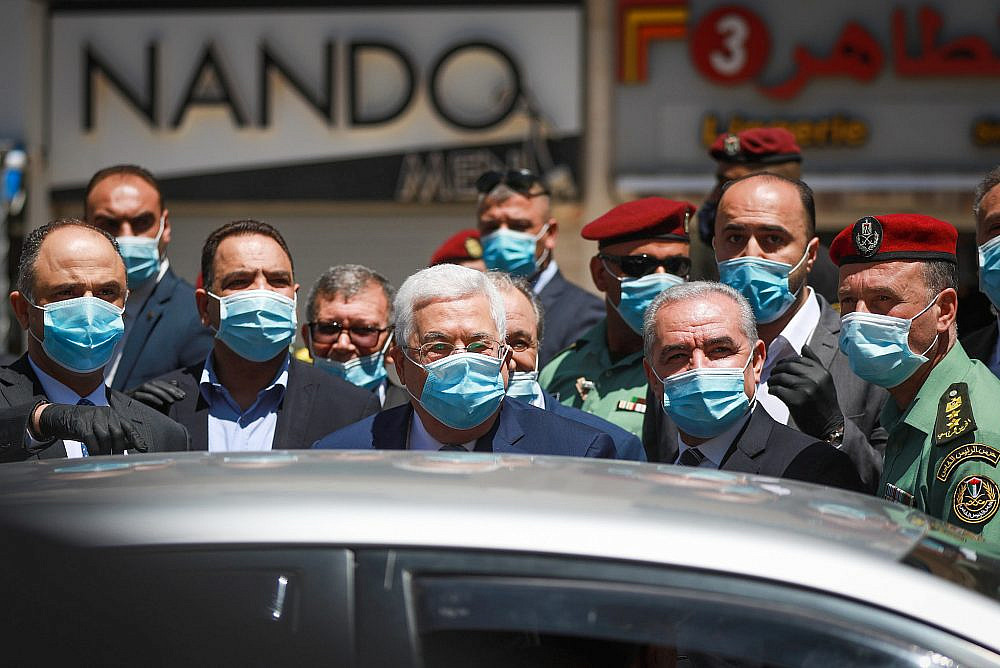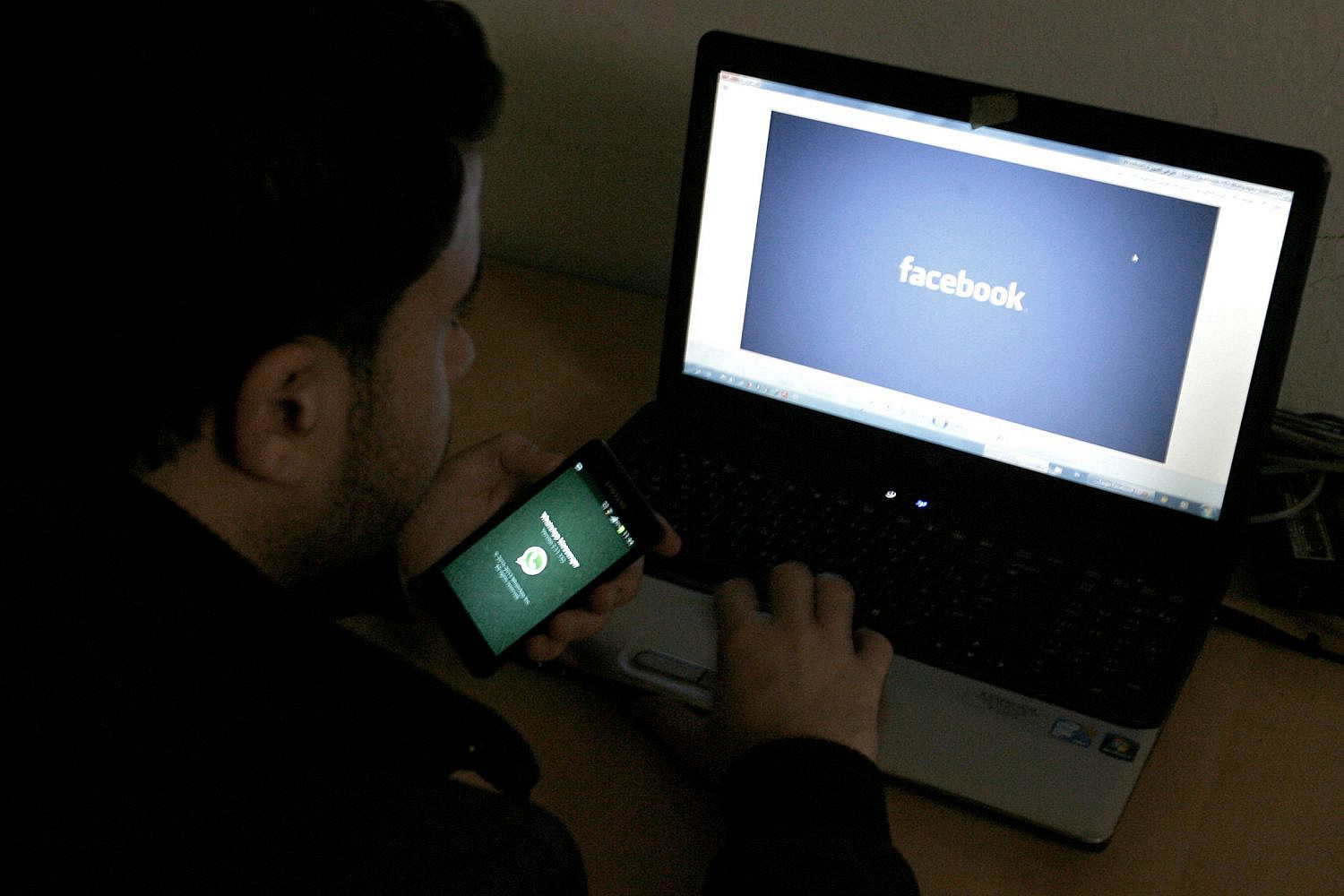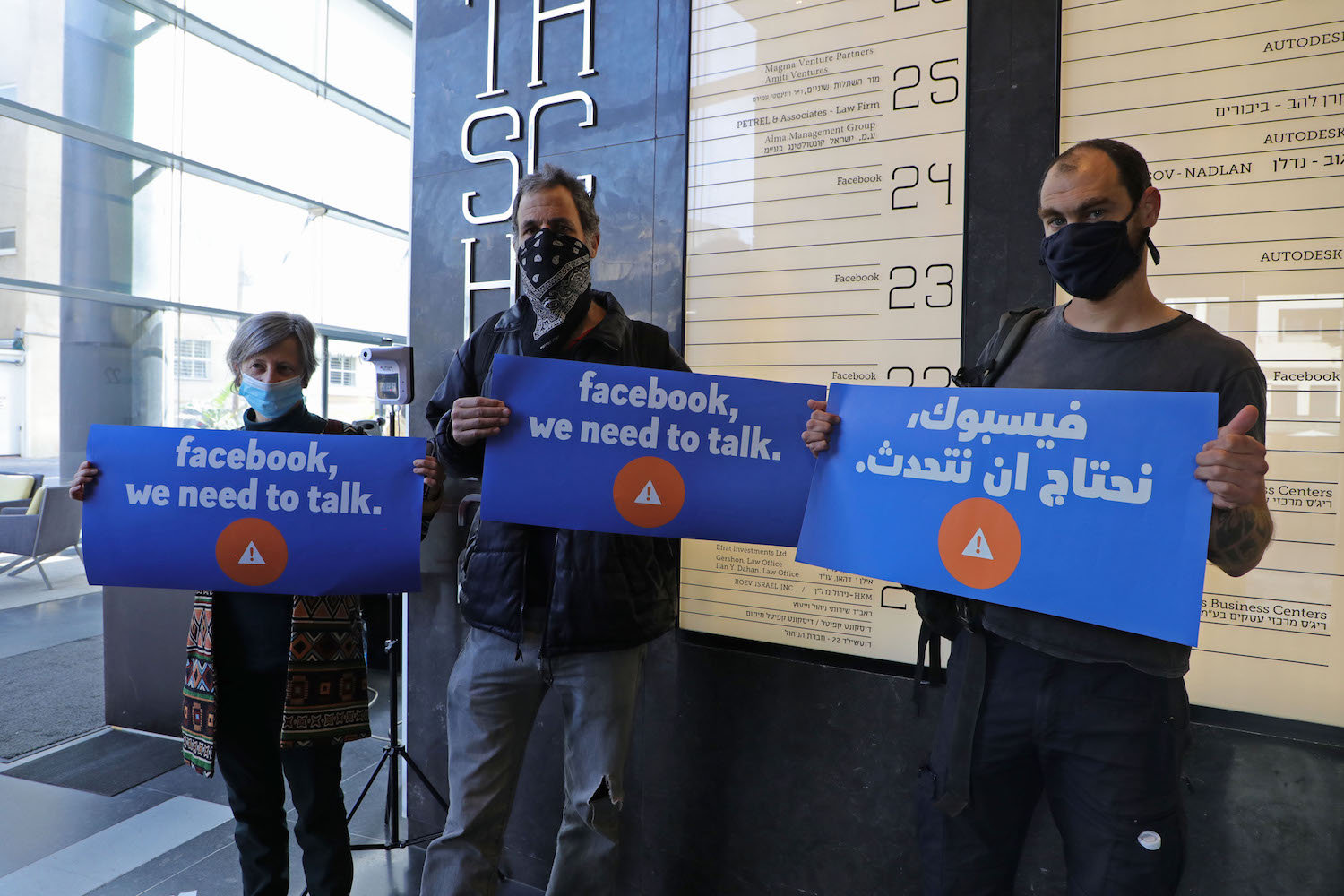A Brief Colonial History Of Ceylon(SriLanka)
Sri Lanka: One Island Two Nations
A Brief Colonial History Of Ceylon(SriLanka)
Sri Lanka: One Island Two Nations
(Full Story)
Search This Blog
Back to 500BC.
==========================
Thiranjala Weerasinghe sj.- One Island Two Nations
?????????????????????????????????????????????????Friday, April 30, 2021
Elections or not, the PA is intensifying its authoritarian rule online
The run up to PA elections has alarmingly shown what Palestinian political activism is facing in the digital age: more surveillance, more repression.
 |
Palestinian President Mahmoud Abbas during a tour in the West Bank city of Ramallah, May 15, 2020. (Flash90)
When Palestinian President Mahmoud Abbas called for elections in January, the news was met with profound skepticism. Abbas has previously declared elections without going through with them, and under his 16-year rule, the Palestinian Authority has become more corrupt and authoritarian, shedding doubt over whether the elections would be free, fair, or democratic. Indeed, with the looming threat of losing seats, Abbas is expected to announce the indefinite postponement of legislative elections, originally set to take place on May 22.
Even if elections are canceled again, the limited political organization that has taken place since they were decreed underscores just how much Palestinian political space has shrunk in the last two decades. This is largely a result of the PA’s restrictions and abuses on the ground, including the intimidation and harassment of journalists and activists, as well as the arbitrary detention and systematic torture of Palestinians who are critical of their government.
More recently, the PA has been relentlessly clamping down on dissenters in yet another space: the internet.
Last Wednesday, Facebook said it had stopped a cluster of hackers associated with the PA’s Preventive Security Service, the internal intelligence unit set up by Yasser Arafat in 1994, that was targeting Palestinians in the occupied territories, including activists, journalists, and people opposed to Fatah’s leadership. According to Facebook’s detailed analysis of the network, the PSS relied on social engineering using “fake and compromised accounts to create fictitious personas posing primarily as young women, and also as supporters of Hamas, Fatah, various military groups, journalists and activists to build trust with people they targeted and trick them into installing malicious software.”
This operation gives us an alarming look into what Palestinian political participation means in the digital age: more surveillance of the Palestinian people, and more control for the factions already in power.
 |
A Palestinian youth holds a phone displaying WhatsApp in front of a computer with Facebook in Rafah in the southern Gaza Strip on February 26, 2014. (Abed Rahim Khatib/Flash90)
In another report published by Facebook in January on inauthentic coordinated behavior — which it defines as “coordinated efforts to manipulate public debate for a strategic goal where fake accounts are central to the operation” — the social media giant said it had removed over 206 accounts, 78 pages, three groups, and 14 Instagram accounts primarily targeting Palestinians in the West Bank and Gaza. The document didn’t specify the individuals or groups linked to the operation, but the content disseminated was critical of Abbas and supportive of his opponent, the exiled former security minister Mohammad Dahlan, who is based in the United Arab Emirates.
A powerful censorship tool
The last time Palestinians went to the polls was in 2006, before the age of social media and the online ecosystems as we know them today. Since then, digital platforms have become increasingly popular among Palestinians, providing them with a space to exercise their right to freedom of expression and opinion, to organize politically, and to criticize not only the oppression of the Israeli regime but also that of the Palestinian leadership.
Inspired by the 2011 Arab uprisings, one of the earliest uses of social media for political organizing was done by the short-lived 15 March movement, which called for mass protests across the Palestinian territories and in refugee camps in Jordan, Syria, and Lebanon, in order to unite Palestinians and end the political division between Fatah and Hamas. Many other activist blogs and Facebook pages ensued.
With the advent of this criticism, though, the PA sought ways to censor and shut down dissent online. The first act of online censorship occurred in 2008, when the PA blocked a Gaza-based news site called Donia al-Watan for publishing a report on the PA’s corruption. In 2012, the PA instructed internet service providers (ISPs) in the West Bank to block eight websites, most of which were affiliated with Abbas’ opponent Dahlan. Then in 2017, two weeks before Abbas secretly decreed his controversial cybercrime law, the PA shutdown another 29 websites. Most recently, in October 2019, a court in Ramallah ordered the blocking of 59 more Palestinian websites opposing the PA and Abbas.
 |
Palestinian security forces guard a checkpoint at the entrance to the West Bank city of Hebron, Dec. 10, 2020. (Wisam Hashlamoun/Flash90)
The draconian 2017 law against cybercrimes came to legitimize these acts of censorship. Its vague provisions allow the PA to surveil citizens, block websites within 24 hours, and force ISPs to retain people’s data. The law also criminalizes online speech that threatens “national security,” violates “public decency” and “family values,” harms “national unity,” or incites “civil strife.” These ambiguous and overbroad terms give the Palestinian public prosecutor incredible power and liberty to prosecute anyone over their online speech, and the cases are plenty.
Even though the law was amended in 2018 following strong pressure from Palestinian and international civil society, it remains a powerful censorship tool that the PA can use on command. Between January 2018 and March 2019 alone, the PA detained 752 Palestinians for their social media posts, and Hamas detained 66 people for similar causes.
Multiple layers of surveillance
In addition to Fatah’s monopoly in the West Bank and Hamas’ stronghold in Gaza, social networks are lending a hand to the restriction of civic and political space available to Palestinians.
For one, Hamas and the Popular Front for the Liberation of Palestine are both listed in the U.S. State Department’s Foreign Terrorist Organizations. Accordingly, under its policy of “dangerous individuals and organizations,” Facebook does not allow them to have a presence on its platform, and the company will actively remove content that supports or praises factions or individuals connected to them. As such, if legislative elections were to take place, candidates affiliated with Hamas or the PFLP would have found it impossible to run their campaigns on social media.
The platform’s ban of an event last year in which PFLP member Leila Khaled was set to speak is only one recent example. For years now, Facebook has disproportionately and systematically censored Palestinian speech through tailored content moderation policies, at the behest of the Israeli government.
 |
Israeli activists deliver a petition signed by 50,000 people to Facebook’s Head of Israel Policy, Jordana Cutler, demanding the company refrain from changing its hate speech policy to include the word “Zionist” as antisemitic, Tel Aviv, February 26, 2021. (Heidi Motola/Activestills.org)
Their “shaheed policy,” for instance, considers the use of the word shaheed (meaning “martyr” in Arabic) a glorification or praise for terrorism, which disregards and vilifies the political, social, and religious use of this word in Palestine and the wider Arab world. Most recently, Facebook has been mulling over adding the word “Zionist” as a protected group under its hate speech policy, which would further silence Palestinians and allies when discussing their lived realities and holding the Israeli regime accountable for its human rights abuses.
Palestinians living under Israel’s military rule are thus subjected to multiple layers of surveillance. Israel, a world leader in cyber security and surveillance tech, spares no effort in deploying its invasive tools to spy on the most intimate details of Palestinian life, including their relationships, sexual orientation, financial status, and health conditions, as it has been doing since its creation. Now, Palestinian leaders are attempting to control their subjects using similar invasive technologies, albeit more primitive ones.
In the face of this corporate censorship and Israel’s pervasive surveillance, it’s preposterous that the PA is gearing its limited resources toward spying on and silencing its people instead of protecting them. If Abbas and the PA were ever serious about holding truly democratic and representative elections, inclusive of all Palestinians around the world, they could have harnessed technology in creative ways to overcome the geographical separation of Palestinians. However, at this juncture, the PA is proving once again that it has no interest in serving its people, only in entrenching its power.

